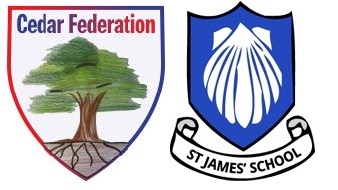Science Curriculum
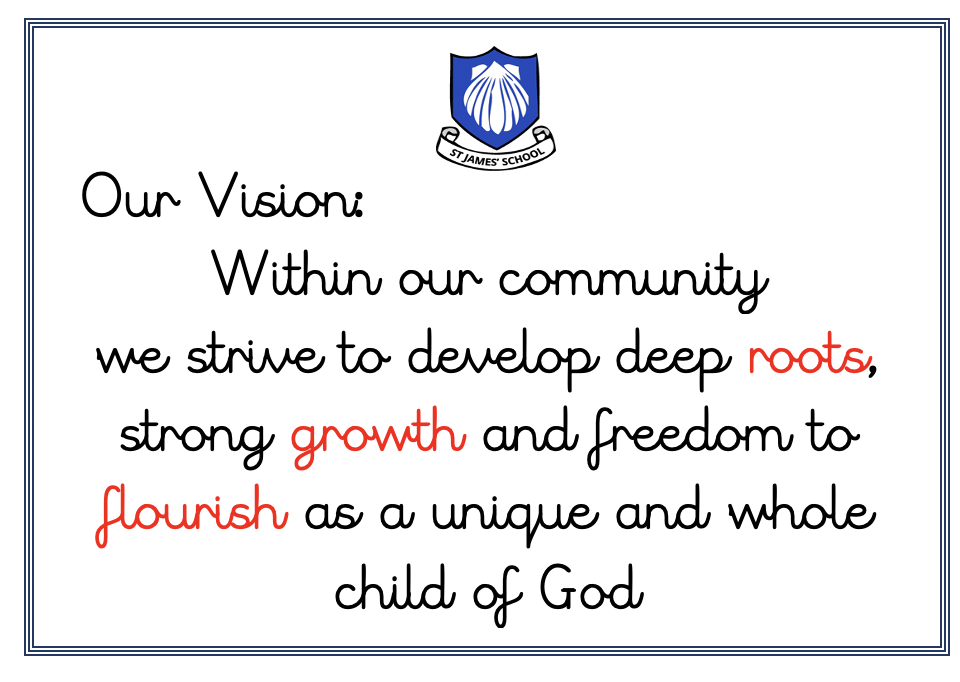
At St James CE Primary School, our curriculum and vision for science is to provide our children with opportunities which enable them to be creative whilst exploring, discovering and understanding the world they live in - encouraging them to be curious, life-long science learners.

We believe that science teaching should enable children to question and be curious to seek answers. We will enable them to seek the answers through practical experiences, exploration and investigation.
Our Science curriculum is shaped by the National Curriculum for Science and we utilise the Collins - Snap Science Curriculum to enable us to provide a creative approach to teaching and learning in science. Our science curriculum aims to ensure that all children:
-
Develop scientific knowledge and conceptual understanding through the specific disciplines of biology, chemistry and physics
-
Develop an understanding of the nature, processes and methods of science through different types of science enquiries that help them to answer scientific questions about the world around them
-
Are equipped with the scientific skills required to understand the uses and implications of science, today and for the future.
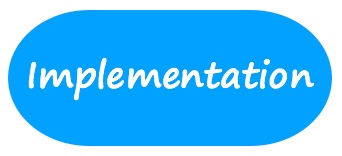
Science is delivered to foster a positive attitude to science within their learning and reinforce an expectation that all children can achieve high standards in science. Each unit has a front cover with key vocabulary that is explored throughout the unit. After the teaching of the unit, the children complete a mini-assessment to show their development and understanding of the unit taught.
Early Years Foundation Stage children use ‘Understanding the World’ indirectly through activities that encourage every child to explore, problem solve, observe, predict, think, make decisions and talk about the world around them.
Working scientifically, skills are embedded into lessons to ensure these skills are being developed throughout the children’s time at St James’. The children are helped to develop their understanding of scientific ideas by using different types of scientific enquiry.
Here is our curriculum:
During years 1 and 2, our children are taught to use the following practical scientific methods, processes and skills through the teaching of the programme of study content:
-
Asking simple questions and recognising that they can be answered in different ways
-
Observing closely, using simple equipment
-
Performing simple tests
-
Identifying and classifying
-
Using their observations and ideas to suggest answers to questions
-
Gathering and recording data to help in answering questions
During years 3 and 4,our children are taught to use the following practical scientific methods, processes and skills through the teaching of the programme of study content:
-
Asking relevant questions and using different types of scientific enquiries to answer them
-
Setting up simple practical enquiries, comparative and fair tests
-
Making systematic and careful observations and, where appropriate, taking accurate measurements using standard units, using a range of equipment, including thermometers and data loggers
-
Gathering, recording, classifying and presenting data in a variety of ways to help in answering questions
-
Recording findings using simple scientific language, drawings, labelled diagrams, keys, bar charts, and tables
-
Reporting on findings from enquiries, including oral and written explanations, displays or presentations of results and conclusions
-
Using results to draw simple conclusions, make predictions for new values, suggest improvements and raise further questions
-
Identifying differences, similarities or changes related to simple scientific ideas and processes
-
Using straightforward scientific evidence to answer questions or to support their findings.
During years 5 and 6, our children are taught to use the following practical scientific methods, processes and skills through the teaching of the programme of study content:
-
Planning different types of scientific enquiries to answer questions, including recognising and controlling variables where necessary
-
Taking measurements, using a range of scientific equipment, with increasing accuracy and precision, taking repeat readings when appropriate
-
Recording data and results of increasing complexity using scientific diagrams and labels, classification keys, tables, scatter graphs, bar and line graphs
-
Using test results to make predictions to set up further comparative and fair tests
-
Reporting and presenting findings from enquiries, including conclusions, causal relationships and explanations of and a degree of trust in results, in oral and written forms such as displays and other presentations
-
Identifying scientific evidence that has been used to support or refute ideas or arguments Science at Foundation Stage is covered in the ‘Understanding the World’ area of the EYFS Curriculum. It is introduced indirectly through activities that encourage every child to explore, problem solve, observe, predict, think, make decisions and talk about the world around them.
Science Overview Summary
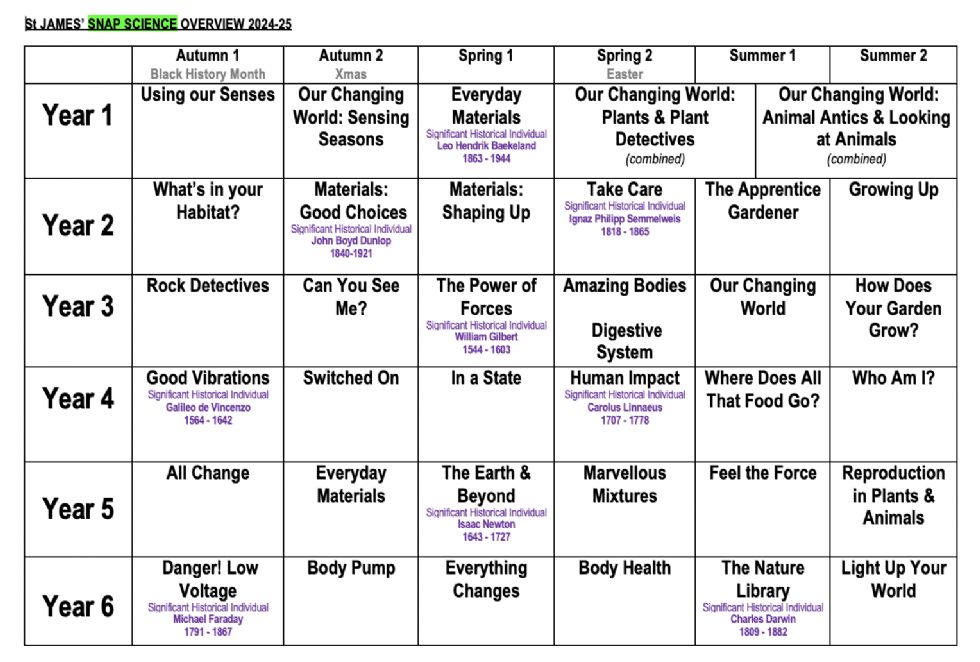
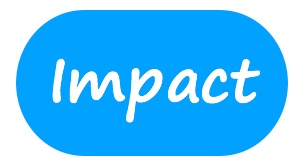
At St. James, we have a child-centered approach which aims to provide children with a foundation and knowledge for understanding the natural world. We use our Christian values to guide and support our children to leave us with a broad, rich and deep knowledge of science. They are able to transfer the skills that they have mastered into wider contexts and are prepared for the next stages of their education. We hope that we have planted the seeds of inquisitiveness and inspired them to always have their minds open to new learning.
We review learning and the impact of our teaching by evaluating pupil voice, tracking attainment and progress. We celebrate and share highly effective practice proven to have an impact upon the children’s learning. We continuously strive to improve the impact of our subscription to 'Snap Science' through Collins Connect by highlighting areas of development so that the learning remains memorable and has an impact on the experience, skills and knowledge developed within our children.
